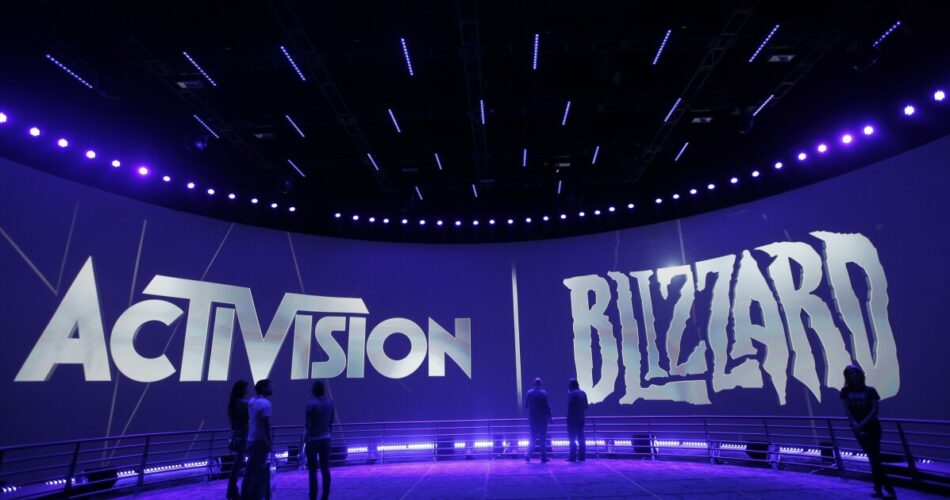Microsoft agreed to buy Activision Blizzard for $68.7 billion on Tuesday, using its vast cash reserves to acquire the company behind blockbuster game franchises such as “Call of Duty,” ”Candy Crush” and “World of Warcraft,” while the Santa Monica firm is being sued by California regulators over allegations of workplace harassment and gender discrimination.
The all-cash deal will be the largest acquisition in Microsoft history, if approved by antitrust watchdogs, and would make the Seattle software giant the third-largest gaming company by revenue, behind Japan’s Sony Group and China’s Tencent Holdings.
Activision Blizzard’s share price had dropped nearly 30% over the past six months, after California’s Department of Fair Employment and Housing filed suit against the firm alleging that senior leaders allowed sexual harassment and pay discrimination to continue unchecked throughout the company for years. A Wall Street Journal investigation in November that showed that Activision chief executive Bobby Kotick knew about sexual harassment allegations for years sparked a protest movement among employees, with nearly a fifth of the firm’s 10,000 staffers signing a petition calling for Kotick’s resignation.
Microsoft agreed to pay $95 per share in the merger, nearly 45% above the stock price before the deal was announced, valuing Activision at a premium over its pre-lawsuit price. Kotick, who has refused to step down under pressure, will retain his role following the merger and report to Microsoft gaming chief Phil Spencer, according to Microsoft’s announcement of the deal.
Microsoft has been on an acquisition spree in recent years, with Chief Executive Satya Nadella looking to invest its $130 billion in cash reserves. In 2020 the company held talks about acquiring TikTok, as the Trump administration pushed the Chinese social video app to sell to an American company, before that deal fell through.
The video game industry has also been booming during the pandemic, with profits driven to new heights as consumers spend more time at home due to COVID-19 precautions, and has seen a number of mergers as studios look to invest. Last week, “Grand Theft Auto” creator Take-Two Interactive announced a deal to buy mobile game company Zynga for more than $11 billion. In 2021, Electronic Arts bought Codemasters, a racing game company, for $1.2 billion, and Microsoft bought Zenimax studios, the company behind “Doom” and the “Elder Scrolls” and “Fallout” franchises, for $7.5 billion in 2020.
Microsoft’s video game strategy depends on having exclusive in-house titles to build up its subscription service, Game Pass, which allows users to pay a monthly fee to access the company’s catalog of games. That business is growing fast, from 10 million subscribers in April 2020 to 25 million in January 2022, and Spencer, Microsoft’s gaming chief, has said that he sees a major growth opportunity in Microsoft’s cloud computing capability, which allows users to stream games on any computer, rather than requiring a powerful desktop machine or Xbox console.
“Players everywhere love Activision Blizzard games, and we believe the creative teams have their best work in front of them,” Spencer said in the announcement. “Together we will build a future where people can play the games they want, virtually anywhere they want.”
Microsoft said that the deal is not expected to close until fiscal year 2023, with the expectation that regulators will take some time to examine the antitrust implications of the merger. In an open letter to employees, Activision CEO Kotick wrote that “Microsoft recognizes the commitment to excellence and creative independence that sets us apart, and we anticipate minimal changes for our workforce following the close of the transaction,” and that the company will continue to operate independently of its new parent.

Source link



